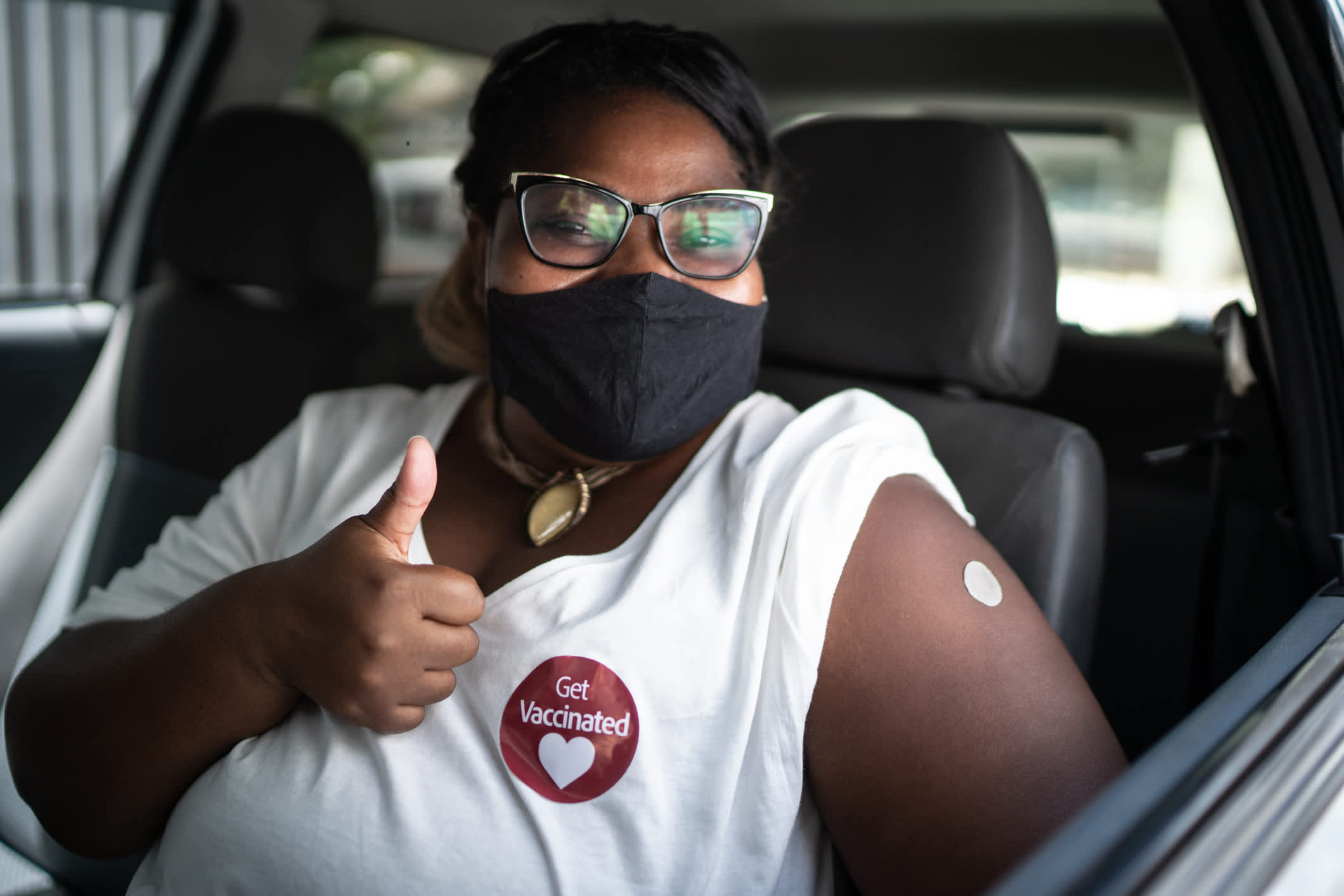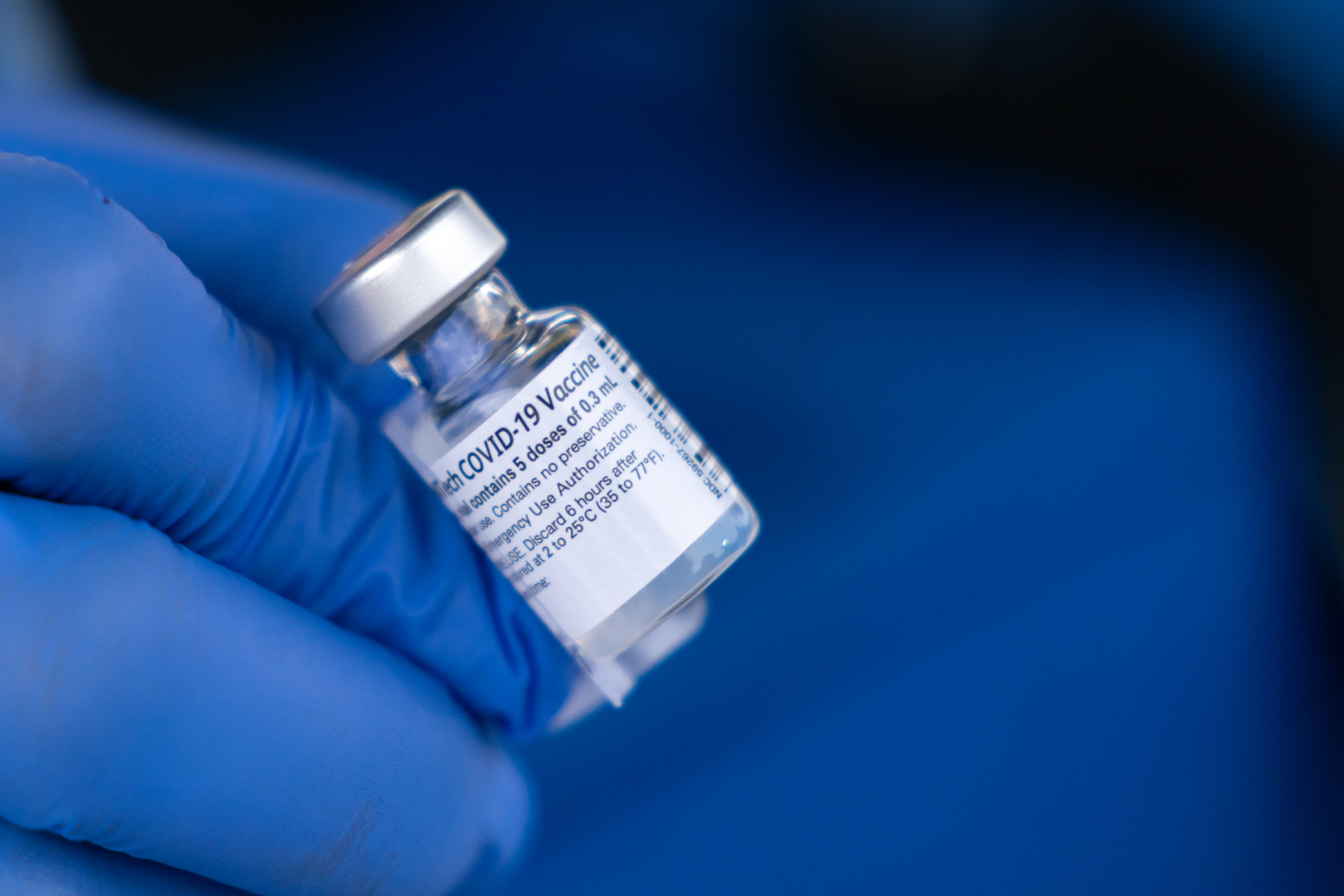The majority of those who contract COVID-19 see improvements within a couple weeks of becoming ill, but some experience symptoms for several weeks and even months.
"Long-haulers," as they're sometimes referred by, are those experiencing lingering health problems following a bout with coronavirus - often known as long COVID, long-haul COVID or post-COVID syndrome.
To complicate matters, no person's situation is the same.
Conditions can present differently and result in combinations of health problems for various lengths of time, according to the Centers for Disease Control and Prevention.
Feeling out of the loop? We'll catch you up on the Chicago news you need to know. Sign up for the weekly Chicago Catch-Up newsletter here.
Here's what you need to know including symptoms to be aware of, which groups are most susceptible and what medical researchers still have yet to determine about the lasting effects.
Symptoms to Look Out For
A range of new or recurring symptoms can last for months after a person first becomes infected with COVID-19.
According to the CDC, people commonly report experiencing different combinations of the following symptoms:
- Difficulty breathing or shortness of breath
- Tiredness or fatigue
- Symptoms that get worse after physical or mental activities (also known as post-exertional malaise)
- Difficulty thinking or concentrating (sometimes referred to as “brain fog”)
- Cough
- Chest or stomach pain
- Headache
- Fast-beating or pounding heart (also known as heart palpitations)
- Joint or muscle pain
- Pins-and-needles feeling
- Diarrhea
- Sleep problems
- Fever
- Dizziness on standing (lightheadedness)
- Rash
- Mood changes
- Change in smell or taste
- Changes in menstrual period cycles
Who's the Most Susceptible?
Older people and those with many serious medical conditions are the most likely to experience lingering effects from COVID-19, according to the Mayo Clinic.
Young, otherwise healthy individuals can also feel unwell for weeks to months after getting infected.
While people with certain risk factors, such as high blood pressure, smoking, diabetes and obesity, are more likely to have a serious bout of COVID-19, there isn't a clear link between these factors and long-term problems, an article from John Hopkins Medicine explained.
More studies will shine a light on why health issues persist in some individuals, doctors stated. Potential reasons could be organ damage or a persistent inflammatory or autoimmune response.
What Are Some Specific Long-term Effects?
A few of the most common symptoms for long-haulers are fatigue, headaches and trouble sleeping, but other lasting effects are more serious.
COVID-19 typically affects the lungs, but can damage many other organs, including the heart, kidneys and the brain, according to the Mayo Clinic.
Potential health effects may include long-term breathing problems, heart complications, chronic kidney impairment, stroke and Guillain-Barre syndrome — a condition that causes temporary paralysis.
Some adults and children have experienced multisystem inflammatory syndrome after they have had COVID-19, doctors said. The condition is when some organs and tissues become severely inflamed.
Overall, hospitalizations lung-related diseases can cause health effects like severe weakness and exhaustion during the recovery period, according to information from the CDC.
Effects can include severe weakness, problems with thinking and judgment and post-traumatic stress disorder, which involves long-term reactions to a very stressful event.
Even mild infections can cause persistent shortness of breath — getting winded easily after even light exertion, according to the Mayo Clinic.
Experts say it can take months for a person’s lung function to return to pre-COVID-19 levels.
How Can I Prevent Long COVID?
The number one way to prevent post-COVID conditions is to prevent COVID in the first place, the CDC states.
Getting vaccinated, health officials say, is by far the best tool to prevent severe illness. Mitigations such as wearing masks, social distancing and washing your hands frequently are also key to reducing the number of infections.
What Are Researchers Still Trying to Figure Out?
Rapid and multi-year studies are underway to further investigate post-COVID conditions, according to the CDC.
The agency is working to identify how common post-COVID conditions are and why some symptoms eventually improve for some people and may last longer for others.
Researchers hope such studies will help them better understand post-COVID conditions and how to treat those with long-term effects.




